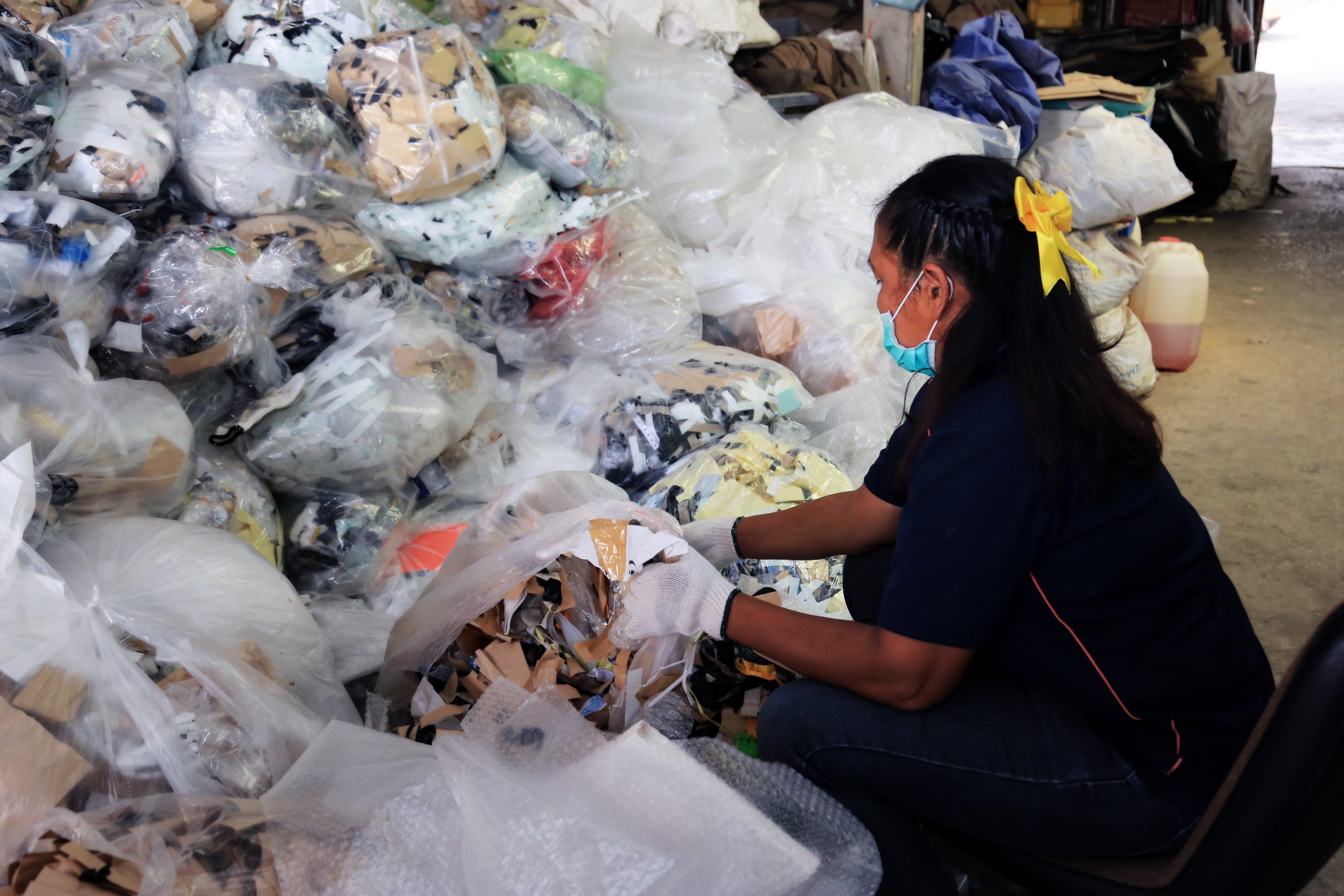A standard for socially-inclusive projects
The Circular Credits Standard consists of a framework of principles, criteria, auditing protocols, guidance notes, and implementation guidelines to assist circular action projects to maximise their social and environmental impacts and participate in the Circular Credits Mechanism.

Inclusiveness and continuous improvement
The CCS aims to be accessible to initiatives in all stages of development, engaging them in a learning-by-doing process to enhance their practices and impact in a continuous improvement trajectory.
It was designed focusing, particularly, at projects that conduct the collection and sorting of waste materials in developing countries, involving waste picker groups, cooperatives and SMEs.
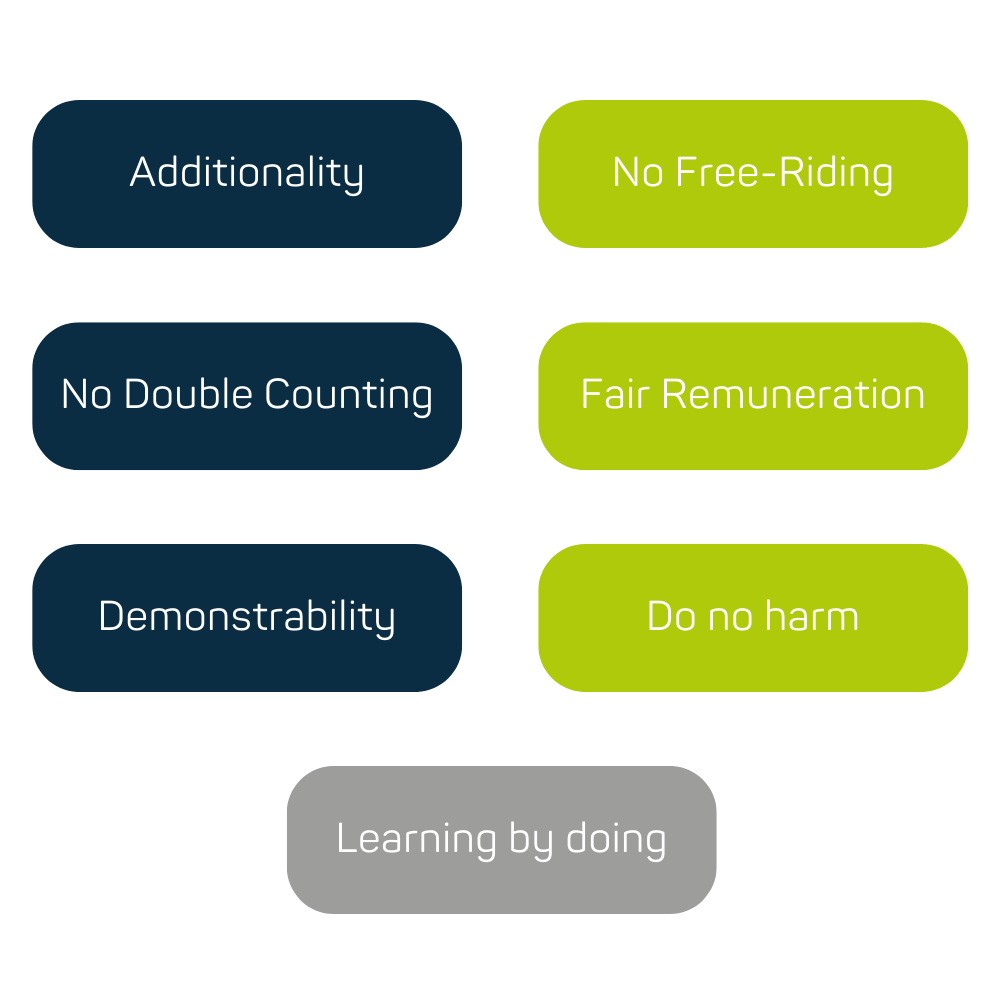
Simple but comprehensive requirements
The Principles and Criteria of the CCS aim to ensure that the application of the standard results in environmentally robust and measurable impacts, while contributing to the improvement of working conditions and remuneration of those involved in circular action projects.

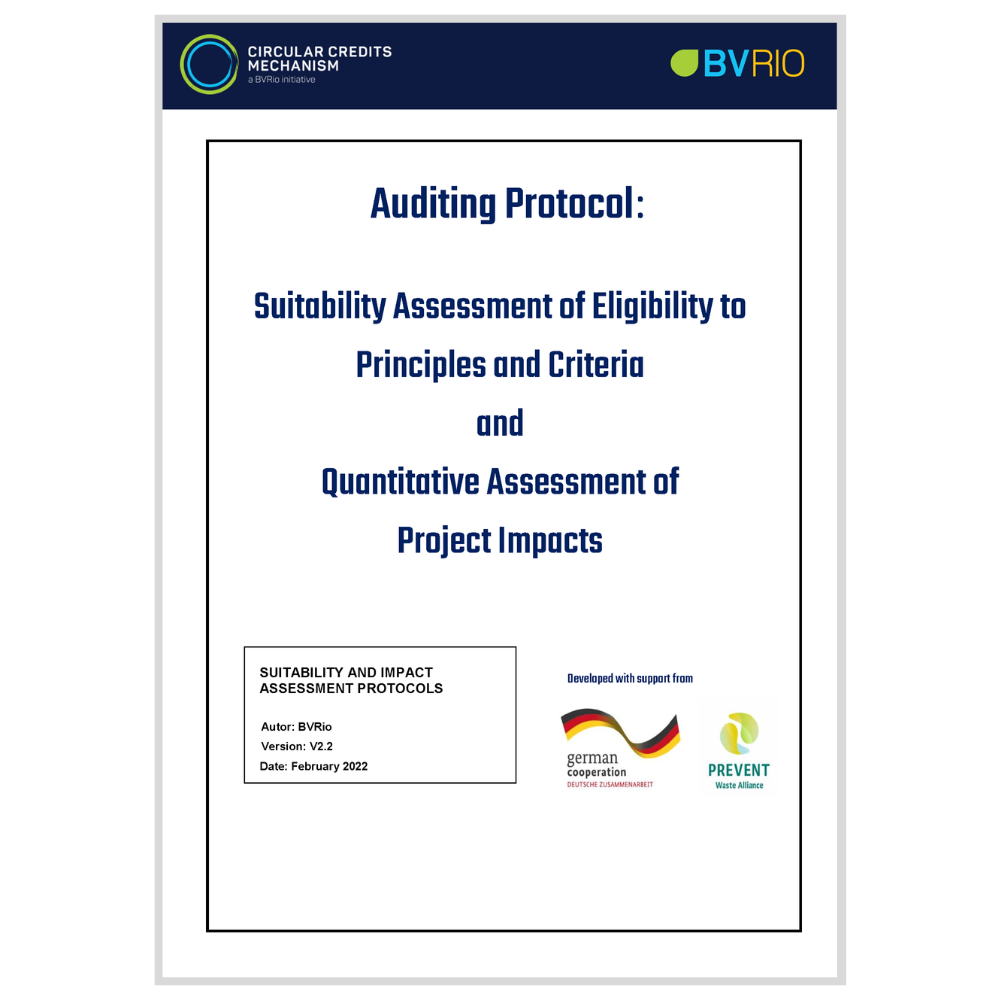
Independent verification
In order to allow for the independent verification of projects’ quantitative and qualitative impacts, the CCS provides auditors with a set of auditing protocols and verification checklists already applied and continuously improved with the help of international certification companies.
Download Audit Protocol Documents:
- Suitability assessment of eligibility to principles and criteria and quantitative assessment of project impacts.
- Validation Checklist
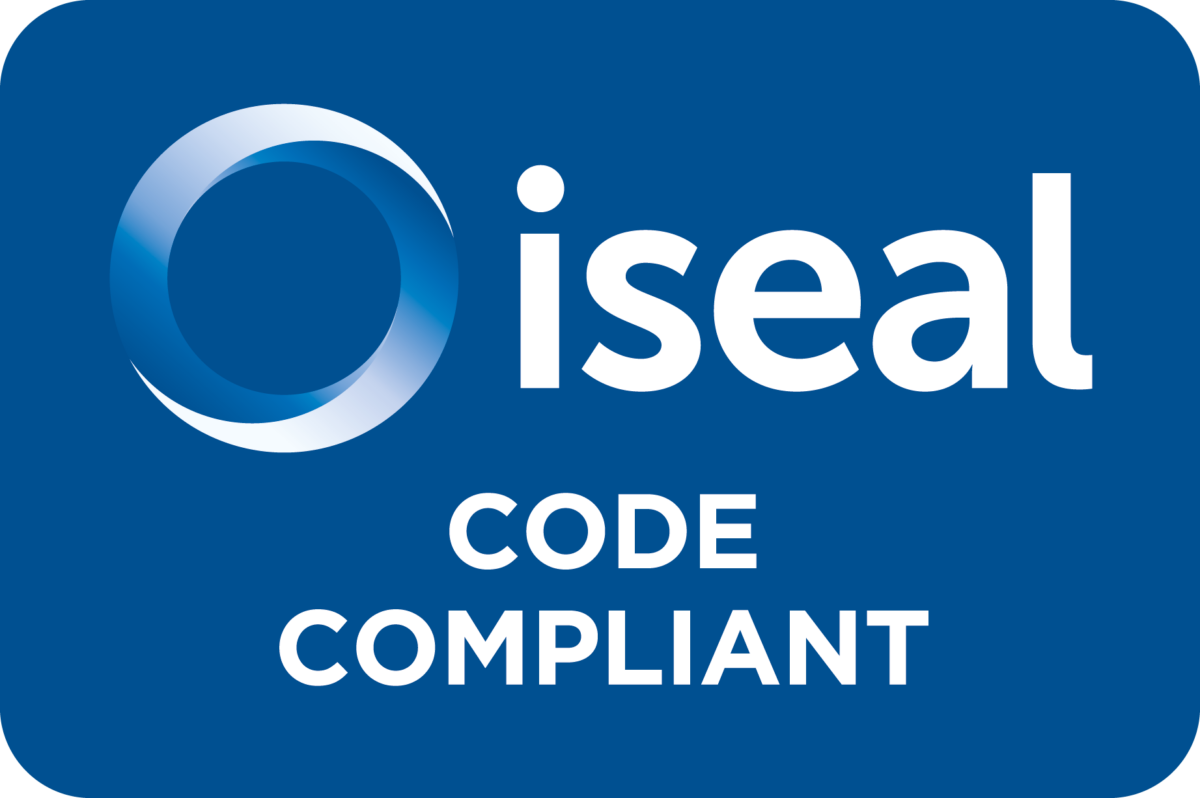
Best practices for systems improvement
The CCS strives to continuously evolve, through a learning by doing process involving consultation with a wide range of stakeholders and following guidelines of ISEAL and WWF‘s Principles for Credible Standards and Certification Schemes.
BVRio is a member of the ISEAL Insights community, and is committed to following ISEAL’s Code of Good Practice in the development of its standards and methodologies.

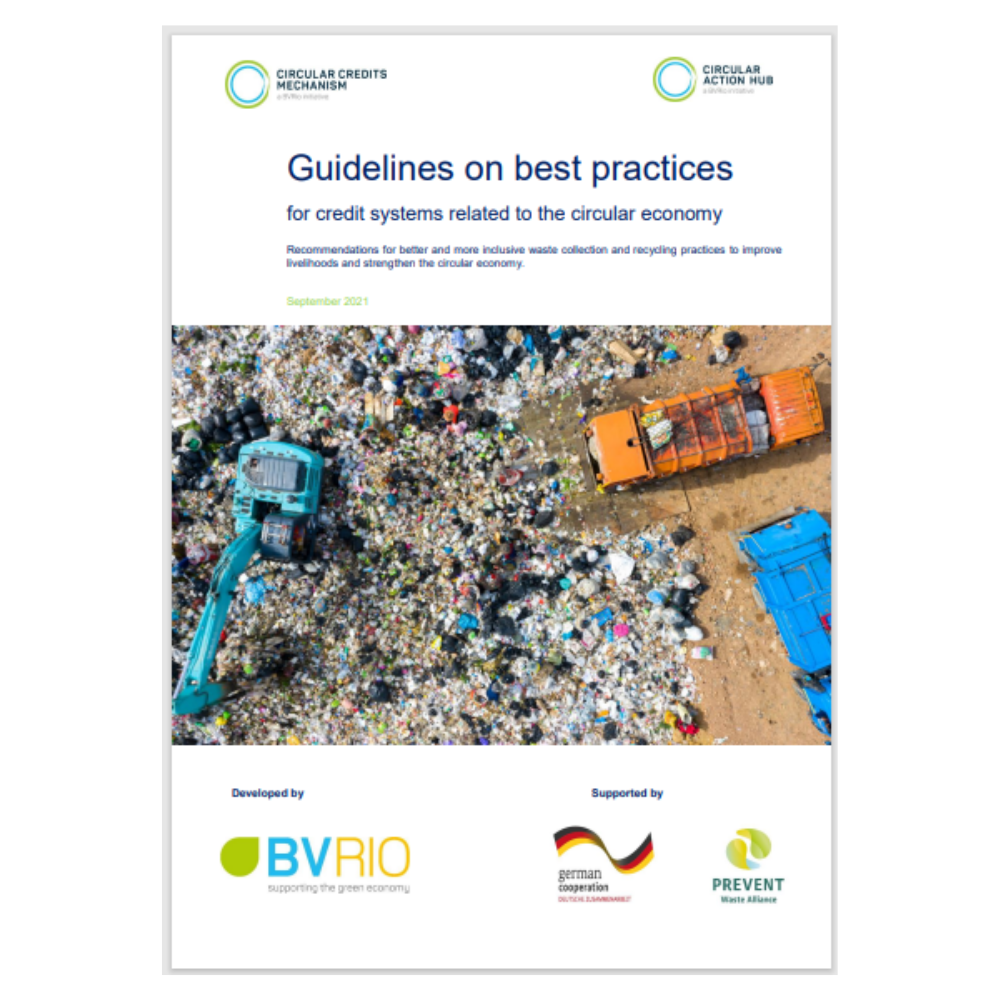
Guidelines on Best Practices for credit systems related to the circular economy.
Recommendations for better and more inclusive waste collection and recycling practices to improve livelihoods and strengthen the circular economy.

